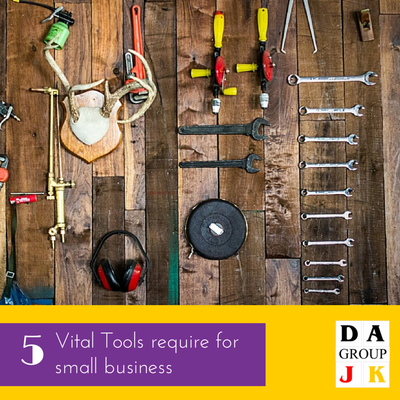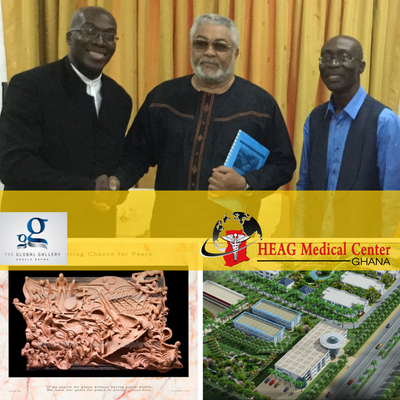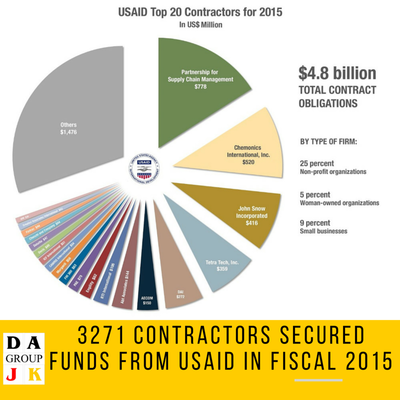|
Getting Started With An Estate Cash Advance Heirs often find themselves waiting years for their probated estate, all while delaying the distribution of funds and incurring large legal fees. Our Asset Management/Investor/Financial Firm (“Investor”) provides fast cash to heirs such as yourself, regardless of credit status, current employment or income history. As America’s foremost provider of inheritance cash advances for over 20 years, our Investor offers competitive pricing and extremely fast and courteous service. We will be available at every stage of the process via email and phone. Estate heirs often receive cash in just 3 days. If you are an heir to a current probate and you are looking for an estate cash advance, get started by calling us or by filling out the confidential form. Our Investor can help you receive money in as little as 3 days and can provide a cash advance of $15,000 to $100,000 and, in some cases, even more. Our Investor works with heirs to estates in every state in the USA. We do not work with estates outside of the USA. What if the heir lives in a different state than where the probate estate is open? It is common for the heirs of a probate estate to reside in a state different from where the estate is going through probate. This is not a problem at all! We routinely work with estates in counties all over the USA. Our Investor also work closely with county probate courts and probate attorneys all across the United States. Who is eligible to receive a cash advance from our Asset Management/Investor/Financial Firm (“Investor”)? Any heir inheriting at least $50,000 from a probate estate which is already open (or is in the process of being opened) is qualified for a probate advance. If you aren’t sure how much you are receiving or if you’re receiving a bit less than $50,000, feel free to still call us for a confidential, no obligation and free consultation. Probate Process In California as Example It can be a very difficult time for surviving loved ones after someone passes away. In addition to obvious emotional issues, the logistics of handling the person’s assets and possessions can be daunting. This is precisely the reason estates enter the California probate process. In California, the role of probate is to account for and collect a deceased person’s assets and belongings into a single estate, determine the rightful heirs, and finally fairly distribute the assets to these heirs. With few exceptions, all estates in California must go through this formal court process. Delays To Your Inheritance In California The major problem with the California probate process is that it’s bogged down with delays at every turn. Most heirs don’t realize just how long it will be until they receive their inheritance in California. In fact, the average time it takes for heirs to receive their inheritance in the USA is a full year and a half according to a national study. A major factor leading to inheritance delays in California is under-funding and over-crowding of the state probate courts. There are just 58 county courts to serve over 38 million people in California – just under 13% of the US population. Just getting a court date to open a probate case can take many months. Add in the delays of selling real estate, settling creditor’s claims, etc. and it can take 2 years or more for rightful heirs to see any of their inheritance in California. Access Your Inheritance In California Immediately Heirs are no longer stuck waiting for their inheritance in California. With an advance on probate from our Investor, heirs can access the money their loved one meant for them right away. The process of receiving your inheritance cash advance in California is fast and easy, and you tell us how much of your inheritance you’d like to receive immediately. Whether you have bills to pay, car payments to make, home improvements, vacations you’d like to go on – the money is yours to use however you’d like. Our Investor has more than 20 years of experience and over $150 million advanced to thousands of heirs, our Investor is the oldest and largest company helping heirs access their inheritance early. Let contact us for a free confidential, no obligation consultation and answer all questions you may have about California probate, an advance on probate, and the process. There are no hidden fees, no monthly payments, and credit and income are never an issue. There’s no need to wait years for what’s rightfully yours. Getting Your Inheritance Cash Advance Inheritance Cash Advances Vs. Probate Loans Our Investor offers inheritance cash advances to heirs such as yourself whose money is trapped in the lengthy probate court process. Our cash advances are not loans, providing several advantages to you. Unlike traditional lenders and banks, we never charge an interest rate, there are no monthly payments, and there’s no need to risk losing collateral assets such as your car or home. Your employment history and credit score won’t impact your eligibility either. In order to qualify for inheritance cash advance, all we ask is that you’re an heir to an estate currently going through probate and that you will be receiving at least $50,000 when the estate closes. As long as that’s the case, we can usually send you a portion of your inheritance right away. In return, you assign a set dollar amount to our company and we wait for the probate estate to close. We even offer significant rebates if we are paid back earlier than originally planned. Fast And Easy Cash From Probate When applying for an inheritance cash advance, you can expect to receive funds in as little as three days. Our Investor will work closely with you and your attorney and be available by phone and email throughout the entire process. Understanding The Probate Process What Is Probate? Simply put, probate is a court-supervised process that oversees the transfer of an individual’s assets (i.e. their “estate”) after death. Probate is a complex, tedious, and time-consuming process that is riddled with delays. Heirs almost always underestimate the amount of time it will take for them to receive their inheritance from an estate in probate. On top of the delays, there is often lack of clarity on how the process works. As an heir, here are some facts that you should immediately understand regarding your role in the probate and inheritance process:
How Does The Probate Process Work? Once again, all estates go through the probate process slightly differently. This breakdown is meant to showcase a fairly “regular” probate procedure. The very first step in the probate process is to file the petition for probate. This petition, along with the original will and codicils (legal alterations to the will) are filed with the probate court. The Notice of Petition to Administer Estate is also filed during this stage. In this case, the “petitioner” is usually the proposed personal representative. Once these forms have been filed, the court clerk will set a hearing for 45-60 days after the filing date. It is at this point that notice has to be given to all of the people named in the will. This is the stage at which you will first receive notice of your inheritance. The Notice of Petition to Administer Estate is also published in a local newspaper to alert the decedent’s creditors. It is during this time that they must file their claims with the court. At the hearing, if no one has filed an objection to the probate, the court will admit the will to probate and appoint the PR. After this appointment, the court will issue Letters Testamentary or Letters of Administration which are used by the PR to prove that they have the authority to act on behalf of the estate. The second step in the probate process consists of an ongoing process of filings, notifications and applicable settlements. The following is just a short list of tasks which must be completed:
As you can tell, the probate process is indeed a long and difficult process. The good news is that the personal representative chose to retain a probate attorney to guide the estate through this complicated process. The bad news is that, even with the help of an attorney, the probate process can still take 12-18 months and in many cases even longer. Can I Access My Money Today? While some estates can be administered in 18 months or less, a large percentage of estates can take up to 3 years to close. This means that the estate heirs may not receive any inheritance money for up to 3 years after probate first begins. If you would like to access your inheritance money right away, we can help you get money in as little as 3 days. We provide cash advances to heirs who have an inheritance stuck in probate. If you are interested in learning more about our cash advance please contact us. Common Questions What exactly is an Inheritance Cash Advance? The inheritance process in the United States takes an average of 17 months to distribute funds to the rightful heirs. An inheritance cash advance allows heirs to access their inheritance immediately when the estate opens rather than waiting for it to close. Are there any risks or fees associated with applying? No! There is absolutely no cost or obligation associated with applying for an advance. Consult with us to discuss your inheritance, the estate, pricing, timelines, etc. all for no charge. Who is eligible to receive a cash advance from our Asset Management/Investor/Financial Firm (“Investor”)? Any heir inheriting at least $50,000 from a probate estate which is already open (or is in the process of being opened) is qualified for a probate advance. If you aren’t sure how much you are receiving or if you’re receiving a bit less than $50,000, feel free to still call us for a free consultation. Does the advance affect other heirs in the estate? No! This is understandably a common question for many of our clients. Our transactions are strictly between our Investor and the specific heir who received the advance. The estate as a whole and the other heirs’ share are never affected by our advances. When the estate is ready to distribute, if there isn’t enough for our Investor to be paid in full out of our client’s specific share, we simply take the loss. Are there minimums and maximums for cash advanced by our Investor to an heir? Generally, our Investor’s advances range from $50,000 to $1,000,000. As a general estimation, assume the advance cannot exceed 30% of an heir’s expected distribution from the probate estate. How much does it cost to get an inheritance advance? The cost involved with an advance is dependent on a number of specific factors such as the amount of time until the estate will be closed, complexity of the estate, size of the advance, etc. With every advance we offer, we guarantee you will receive the lowest price available. We also offer substantial rebates for early repayment. What does our Investor receive in return for the inheritance cash advance? In return for immediate cash advance from our Investor, the heir sells (i.e. “assigns”) to our Investor a fixed amount out of the heir’s eventual share of the probate estate. This fixed amount (i.e. the “assignment amount”) is clearly laid out in the contract and agreed upon before the advance is ever paid. When does our Investor get paid? Our Investor is paid directly from the estate upon distribution. The remainder of our client’s inheritance is distributed directly to them. In other words, our clients never directly make, nor are they personally responsible for, any payments to our Investor. Do you offer rebates if my advance is paid back earlier than expected? Yes! We build substantial rebates into the pricing of our inheritance advances in order to give our clients the best price possible. If we receive payment in full before the Early Pay-off Rebate (EPOR) date, we’ll send you the rebate amount within 5 business days. Are monthly payments required to repay the advance? No. our Investor is paid directly and in full from the probate estate at the time of distribution. Will credit problems prevent someone from getting an heir advance? No! A poor credit record, including delinquencies, discharges in bankruptcy, foreclosures, etc., will not prevent an heir from receiving an advance. Our Investor may still obtain a credit report in preparing a case for funding, but primarily to determine if there are judgments, child support or bankruptcy proceedings that may affect the eventual payment of the assignment. What if there are insufficient funds in the probate estate at the time of distribution to pay our Investor? This is one of the major risks our Investor assumes when it advances inheritance cash to an heir. If an heir gives accurate information on their application and honors the assignment agreement, they have no personal liability for payment of the advance. What happens if a previously unknown creditor makes a claim on the probate estate? This is another risk that our Investor takes away from the heir. If there are insufficient assets at the end of the probate to cover the amount of the assignment, our Investor simply takes the loss. The heir is not liable to pay back the assignment unless, of course, the heir was aware of the claim(s) and failed to tell our Investor about it in the application process. What happens if the distribution of the probate estate is delayed? Our Investor must wait until the probate estate is ready to distribute. There is no recourse to the funded heir for any delays in the distribution. The assignment does not accrue interest or become more expensive. No matter how long the distribution is delayed, our client’s flat fee will never increase! On the other hand, we offer significant discounts if we are paid back earlier than anticipated. Are there any geographic limitations on funding? Our Investor works with heirs to estates in every state in the US. We do not work with estates outside of the US. What if the heir lives in a different state than where the probate estate is open? It is common for the heirs of a probate estate to reside in a state different from where the estate is going through probate. This is not a problem at all! We routinely work with estates in counties all over the country. We also work closely with county probate courts and probate attorneys all across the United States. Who should I call if I have any questions? For questions about an inheritance advance, or to refer heirs or beneficiaries, call us at (562) 301-7231 during California business hour. How do I apply for an advance on my inheritance? The quickest and easiest way to apply is by contact us by online form. Inheritance and Probate Glossary A Administrator A person or institution appointed by the court (in the absence of a will otherwise naming an executor) to distribute the assets according to state intestacy laws and to pay creditors and taxes. The intestate personal representative. Affidavit A written statement made under oath. Age of majority The age when a person acquires all the rights and responsibilities of being an adult. In most states the age of majority is 18. Assignment The transfer of legal rights from one person to another. B Beneficiary Person named in a will or insurance policy to receive money or property; person who receives benefits from a trust. C Capital gain The profit made from the sale of a capital asset, such as real estate, jewelry, or stocks and bonds. Capital loss The loss that results from the sale of a capital asset, such as real estate, jewelry or stocks and bonds. Chapter 13 bankruptcy A type of bankruptcy in which a person keeps his assets and pays creditors according to an approved plan. Codicil:. An amendment to a will. Chapter 7 bankruptcy A type of bankruptcy in which a person’s assets are liquidated (collected and sold) and the proceeds are distributed to the creditors. Common-law marriage In some states, a couple is considered married if they meet certain requirements, such as living together as husband and wife for a specific length of time. Such a couple has all the rights and obligations of a traditionally married couple. Community property Property acquired by a couple during their marriage. Refers to the system in some states for dividing the couple’s property in a divorce or upon the death of one spouse. In this system, everything a husband and wife acquire once they are married is owned equally (fifty-fifty) by both of them, regardless of who provided the money to purchase the asset or whose name the asset is held in. Conservator Person or institution designated by the court to protect the interests of an incompetent and act on his/her behalf. Sometimes called a guardian. Contract An agreement between two or more parties in which an offer is made and accepted, and each party benefits. The agreement can be formal, informal, written, or oral. Some contracts are required to be in writing in order to be enforced. Creditor A person (or institution) to whom money is owed. Creditors’ claims period Specific time frame, as defined by state probate laws, during which creditors can file a claim against a decedent’s estate. Custodian Under the Uniform Transfers to Minors Act, the person appointed to manage and dispense funds for a child without court supervision and accounting requirements. D Debtor Person who owes money. Decedent Person who passed away. Default The failure to fulfill a legal obligation, such as neglecting to pay back a loan on schedule. Docket number Number designation assigned to each case filed in a particular court. E Easement Gives one party the right to go onto another party’s property. Utilities often get easements that allow them to run pipes or phone lines beneath private property. Elective share Refers to probate laws that allow a spouse to take a certain portion of an estate when the other spouse dies, regardless of what was written in the spouse’s will. Emancipation When a minor has achieved independence from his or her parents, often by getting married before reaching age 18 or by becoming fully self-supporting. Encumbrance Any claim or restriction on a property’s title. Escrow Money or documents, such as a deed or title, held by a third party until the conditions of an agreement are met. For instance, pending the completion of a real estate transaction, the deed to the property will be held “in escrow.” Escrow account A special account in which a lawyer or escrow agent deposits money or documents that do not belong to the lawyer or the law firm. Estate The assets and liabilities left by a decedent. Ex parte Latin that means “by or for one party.” Refers to situations in which only one party appears before a judge. Executor A person or institution named in a will and appointed by the court to oversee and manage an estate, including the distribution of assets and satisfaction of creditors and taxes. F Family limited partnership A legal partnership between members of a family for the management and control of property. Fiduciary duty An obligation to act in the best interest of another party. For instance, a corporation’s board member has a fiduciary duty to the shareholders, a trustee has a fiduciary duty to the trust’s beneficiaries, and an attorney has a fiduciary duty to a client. Foreclosure When a borrower cannot repay a loan and the lender seeks to sell the property. G Grantor The person who sets up a trust. Guardian Person appointed by the court to take care of minor children or incompetent adults. Sometimes called a conservator. Guardian ad litem Latin for “guardian at law.” The person appointed by the court to look out for the best interests of the child during the course of legal proceedings. H Heir Person entitled to inherit property of the decedent. Holographic will A handwritten will. I Intestate Dying without a legal will. Irrevocable trust A trust created during the maker’s lifetime that does not allow the maker to change it. J Joint and survivor annuity A form of pension fund payment in which the retired participant gets a check every month. If and when the participant dies, the spouse continues to get a monthly check equal to one-half of the benefit for the rest of his or her life. Joint tenancy A way to title (own) property where each person (tenant) owns an undivided interest. When one tenant dies, his or her interest passes to the survivor. L Legatee Also known as a beneficiary. Person named in a will to receive property. Lien A claim against someone’s property. A lien is instituted in order to secure payment from the property owner in the event that the property is sold. A mortgage is a common lien. Living trust A trust created during the maker’s lifetime. Some living trusts are set up so that they can be changed during the maker’s lifetime. These are called “revocable.” Others, known as “irrevocable,” are set up so that they can’t be touched. Living will A document that states a person’s wishes regarding life-support or other medical treatment in certain circumstances, sometimes when death is imminent. M Marital exemption A tax provision that allows an unlimited amount of property of one spouse to transfer to the other upon death without incurring estate or gift tax. Minor A person who does not have the legal rights of an adult. A minor is usually defined as someone who has not yet reached the age of majority. In most states, a person reaches majority and acquires all of the rights and responsibilities of an adult when he or she turns 18. N Notary public A person authorized to witness the signing of documents. P Pension plan An employer’s program for providing retirement income to eligible employees. Per stirpes Latin for “by familial stocks.” Distribution of an estate equally among the members of a group of descendants having a particular degree of kinship (as children), with the issue (that is, the offspring) of a deceased member of that group representing the deceased member, taking the deceased member’s share, and dividing it equally among themselves. For example, if a decedent had three children, one of whom had already died leaving issue, the estate would be divided into thirds, with each living child receiving a one-third share, and the issue (children) of the deceased child dividing a one-third share equally amongst themselves. Personal representative A person who manages the legal affairs of a decedent in probate. If the decedent had a will, then the personal representative is known as the Executor (if the Executor is female, Executrix). If the decedent did not have a will and the assets are being distributed according to laws of intestacy, then the personal representative is known as the Administrator (if the Administrator is a female, Administratrix). Petition for probate The probate court document that summarizes a will’s provisions and names the heirs. Power of attorney The authority to act legally for another person. Probate The court supervised process whereby a decedent’s assets are distributed to a decedent’s heirs and creditors are paid back after s/he passes away. Promissory note A document in which a borrower agrees (promises) to pay back money to a lender according to specified terms. Q Quitclaim deed A deed that transfers the owner’s interest to a buyer but does not guarantee that there are other claims against the property. R Real property Land and all the things that are attached to it. Anything that is not real property is personal property. A house is real property, but a dining room set is not. Residuary estate Also known as residue of the estate. Portion of the estate left after bequests of specific items of property are made. Residuary legatee The person or persons named in a will to receive any residue left in an estate after the bequests of specific items are made. Retainer Refers to the up front payment a client gives a lawyer to accept a case. The client is paying to “retain” the lawyer’s services. Revocable trust A legal document that may be changed or cancelled that allows you to maintain control of your assets. It is used to avoid probate and for estate planning purposes. Right of survivorship In a joint-tenancy, the property automatically goes to the co-owner if one of the co-owners dies. A co-owner in a joint tenancy cannot give away his or her share of the property. S Self-proving will A will accompanied by a sworn statement from witnesses and signed before a notary public. Spendthrift trust A trust designed to keep money out of the hands of creditors, often established to protect someone who is incapable of managing his or her financial affairs. Spousal right The entitlement of one spouse to inherit property from the other spouse. The right varies from state to state. Statutory fees In many states and in the majority of probate matters, the amount an attorney can charge for his or her services is specified by law as a percentage of the gross value of the estate. T Tangible personal property Anything other than real estate or money, including furniture, cars, jewelry, etc. Tenancy in common A type of joint ownership that allows a person to sell his share or leave it in a will without the consent of the other owners. If a person dies without a will, his share goes to his heirs, not to the other owners. Testamentary trust A trust created by the provisions in a will. Typically comes into existence after the writer of the will dies. Testate Having a legal will. Testator The person who makes a will. Title Ownership of property. Totten trust A bank account in your name for which you name a beneficiary. Upon the death of the named holder of the account the money transfers automatically to the beneficiary. Trustee Person or institution that oversees and manages a trust. W Will A legal document that directs distribution of assets upon death.
0 Comments
Leave a Reply. |
AuthorDAJK GROUP is the place where investors, business owners and entrepreneurs can research and find useful information, insight, resources, advice, guidance and inspiration for acquiring funds for their project, acquisition for their net lease commercial real estate, increasing their assets and running their profitable business. Archives
July 2023
Categories |
Services |
Company |
|






































